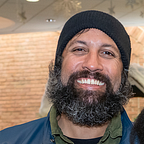Don’t Let Criminals Kill Off the World’s Smallest Porpoise
by AJAI RAJ
There are fewer than 60 vaquita porpoises left in the wild, and conservationists are coming together in an international effort to save them before they’re completely gone.
The vaquita (Phocoena sinus), native to the warm waters of the northern Gulf of California, saw a population decline of 80 percent between 2011 and 2015, thanks mostly to the gillnets of Mexican fishermen intent on snaring another endangered species: the totoaba. The swim bladders of these rare fish are prized in the black markets of China and Hong Kong as a folk remedy for nearly every ailment under the sun.
In reality, there is no scientific evidence that totoaba swim bladders have any medicinal value whatsoever, anymore than a rhino’s horn works as an aphrodisiac. But that hasn’t curbed demand for what has been aptly called “the cocaine of the sea.”
“This is a strange combination of two critically endangered species being hit by the same risk factor, fishing,” said Dr. Lorenzo Rojas-Bracho, lead researcher and head of the International Committee for the Recovery of the Vaquita, or CIRVA. “And there’s so much money, it’s kind of similar to the drug wars — the prices are so high that people are willing to take a risk.”
The fishing of totoaba has persisted in spite of substantial measures on the part of the Mexican government. Not only is it illegal to fish totoaba, but the government implemented a two-year ban on gillnets in 2015, as well as a program of financial compensation for fishermen affected by the ban. Still, these measures have not been effective, and more drastic action will be needed if the vaquita population is to survive.
“We’ve recommended to the government of Mexico that they should consider placing some vaquitas in temporary sanctuary in the upper gulf, with the eventual goal of returning these vaquitas from that temporary sanctuary to a gillnet-free environment,” Rojas-Bracho said.
However, he emphasized that capturing all of the remaining vaquitas is not a viable conservation strategy, and that protecting their wild habitat must be the first priority. Despite having a team comprising some of the best conservation biologists from around the world, the team expects that capturing and housing vaquitas will be extremely difficult, if not impossible.
“Nobody has done this before— we don’t know if it’s possible to catch them, we don’t know how vaquitas will respond to the process of capturing and handling them,” Rojas-Bracho said. “We know that harbor porpoises respond very well to capturing, handling, and being released back into the wild, and we have other species of porpoises that react very badly.”
Because of that uncertainty, he said, the team’s efforts will proceed in a staged manner, with an oversight committee reviewing the work at each stage to ensure that no vaquitas are harmed in the process of attempting to save them.
Similar efforts have met with success around the world. Rojas-Bracho pointed to a team in China that captured around eight finless porpoises and moved them to a temporary sanctuary before ultimately being released back into the wild. And the CIRVA team includes experts who have successfully captured marine mammals in the waters off of Greenland and Denmark.
The biggest challenge will simply be finding the vaquitas, since there are so few of them remaining. To that end, CIRVA will use visual surveys, acoustic monitoring technology, and dolphins being trained by the U.S. Navy to find porpoises. The Navy declined to comment for this story, saying that the program was not yet mature enough to be discussed.
The second challenge will be capturing the vaquitas once they’re found, given the uncertainty as to how they’ll react. Rojas-Bracho noted that vaquitas tend to avoid motorized vessels, and so may be averse to human contact — but if that turns out to be the case, they’ll be promptly released.
Despite the long odds, Rojas-Bracho is hopeful that CIRVA’s efforts will succeed, in large part because it is such a concerted international push. “We have people from Europe — Denmark, The Netherlands — Hong Kong, Canada, the U.S., Mexico. I think that’s how to do things in the future.”
With Donald Trump in the White House and Republicans in control of Congress, many have expressed concerns that wildlife protections will be rolled back, particularly the number of species that are protected under the U.S. Endangered Species Act.
“Probably many of us that are conservation biologists are a threatened species now,” Rojas-Bracho said.
Writing is hard. Money is short. Support this writer! Follow Defiant on Facebook and Twitter.
